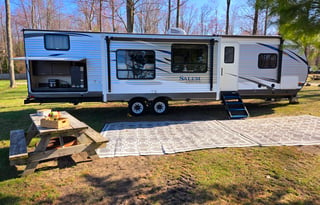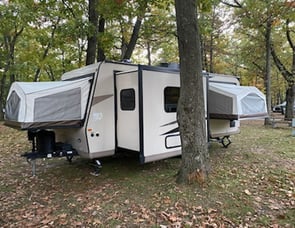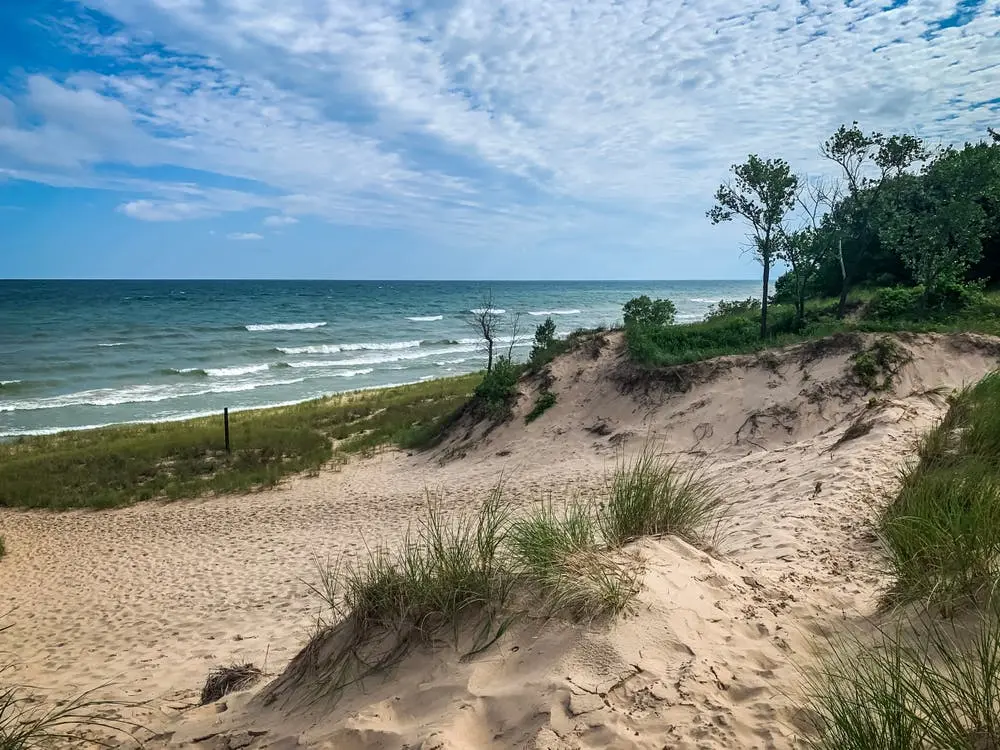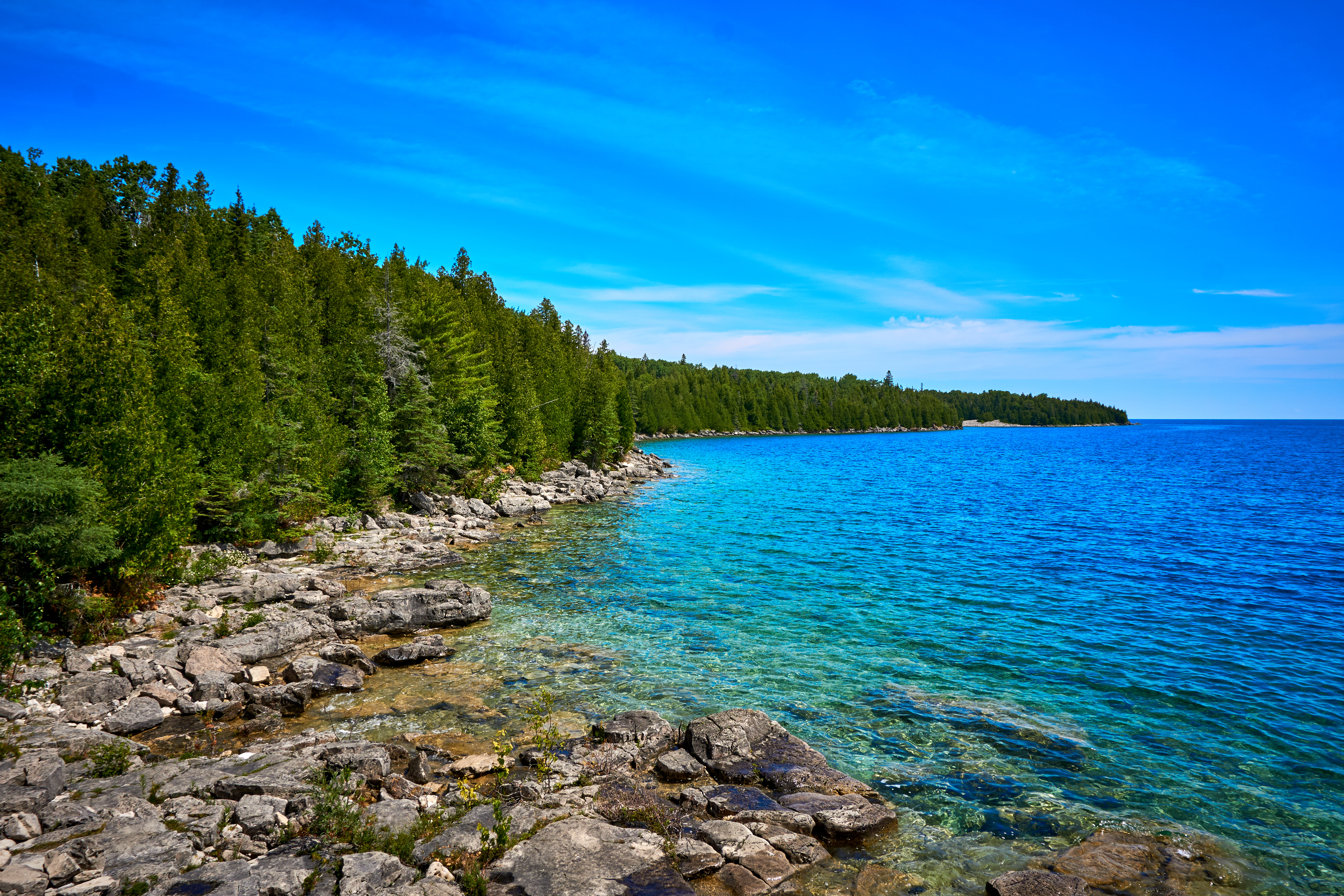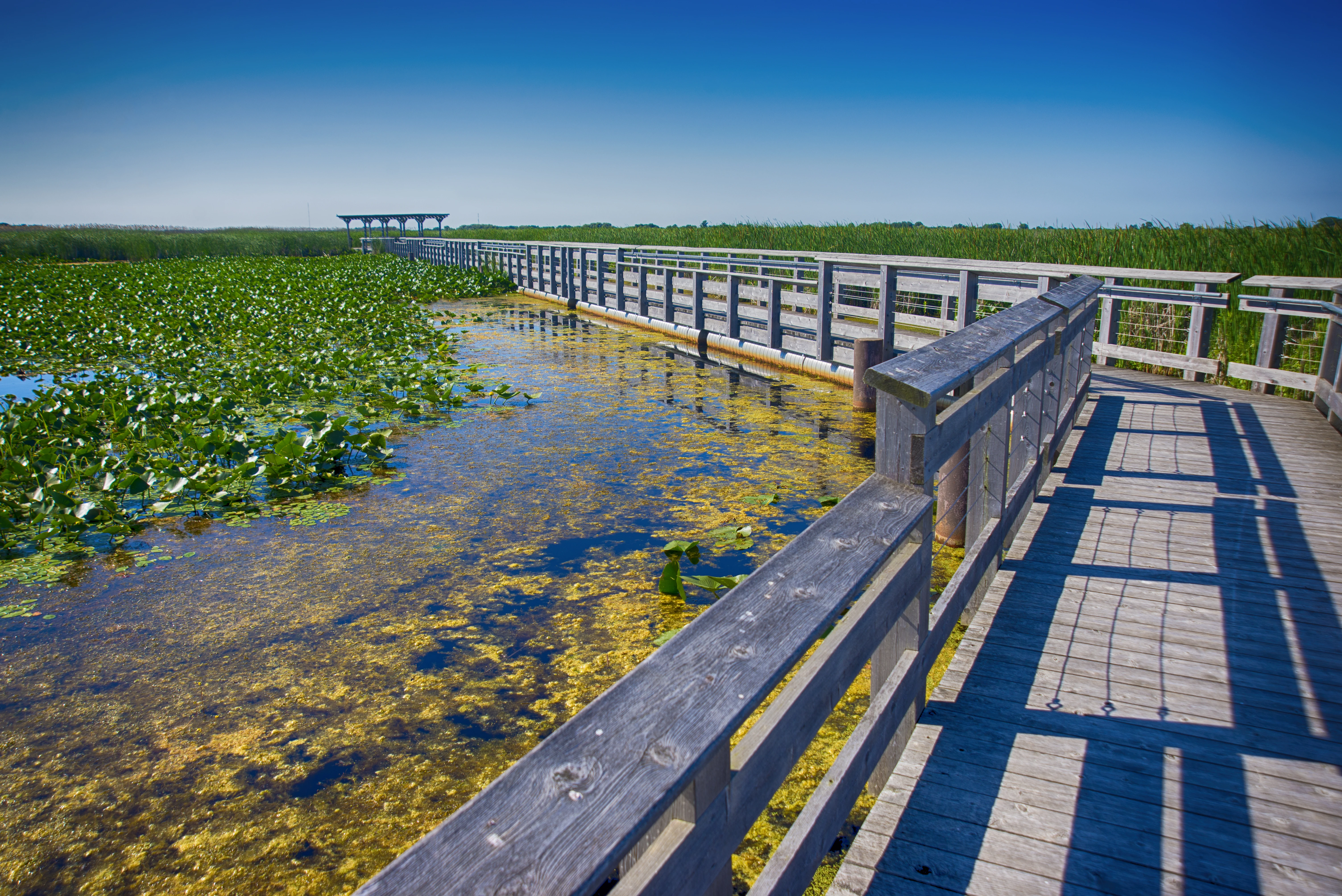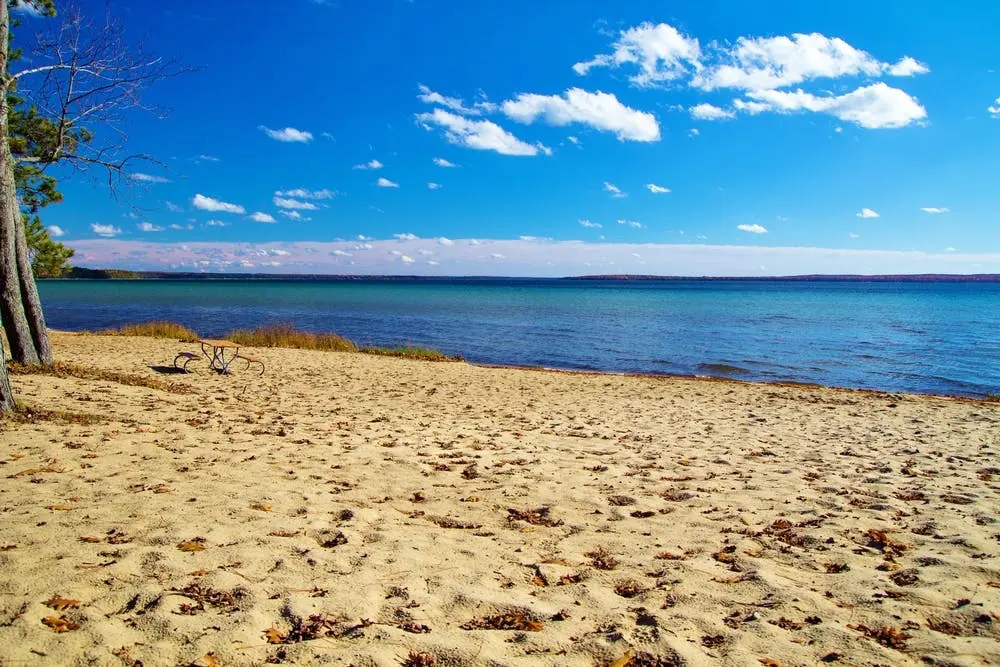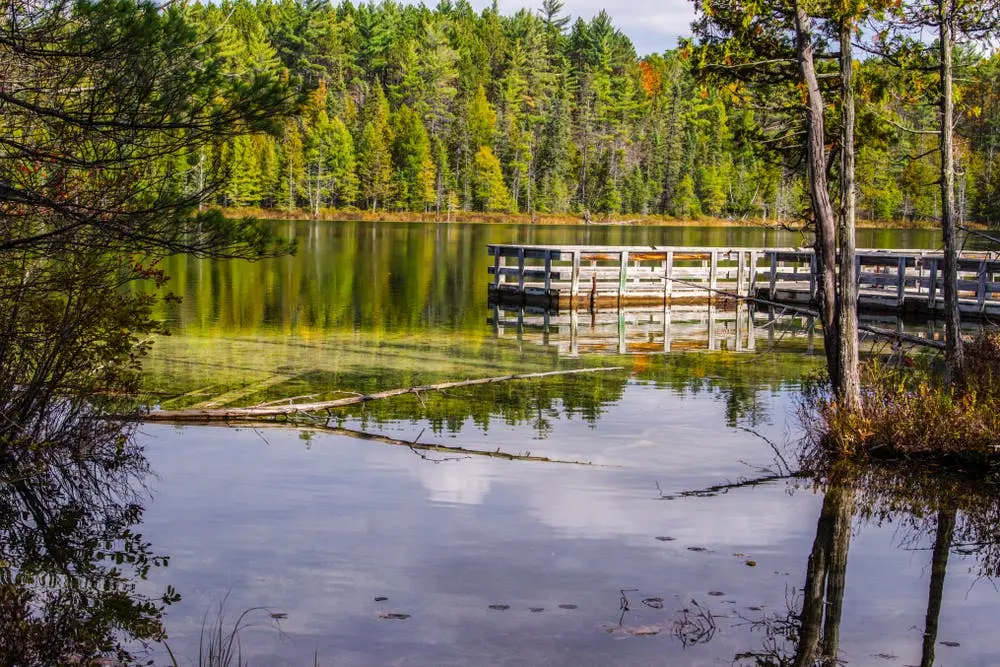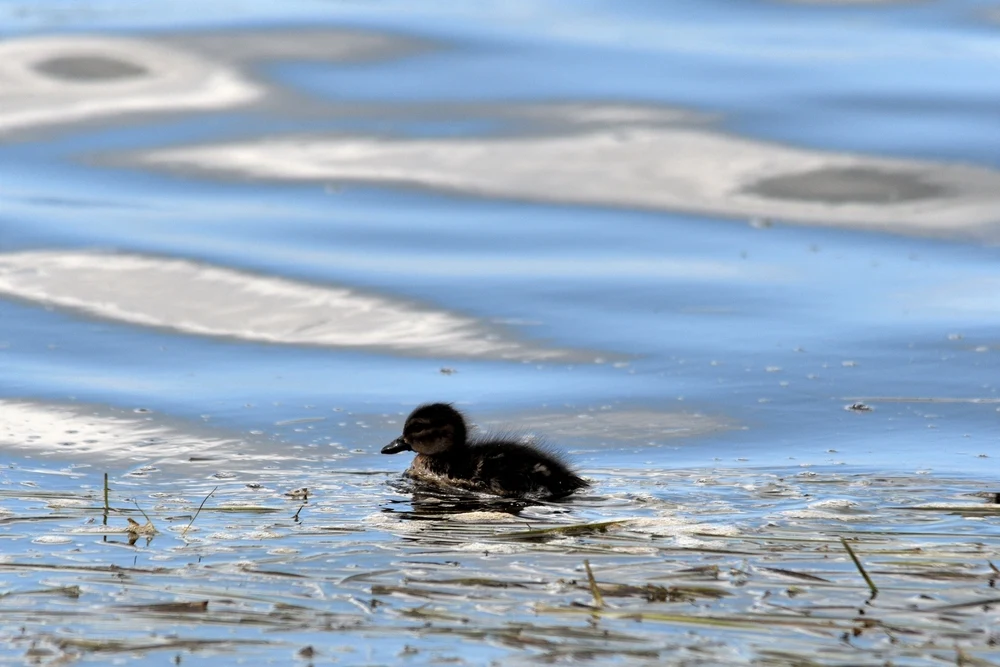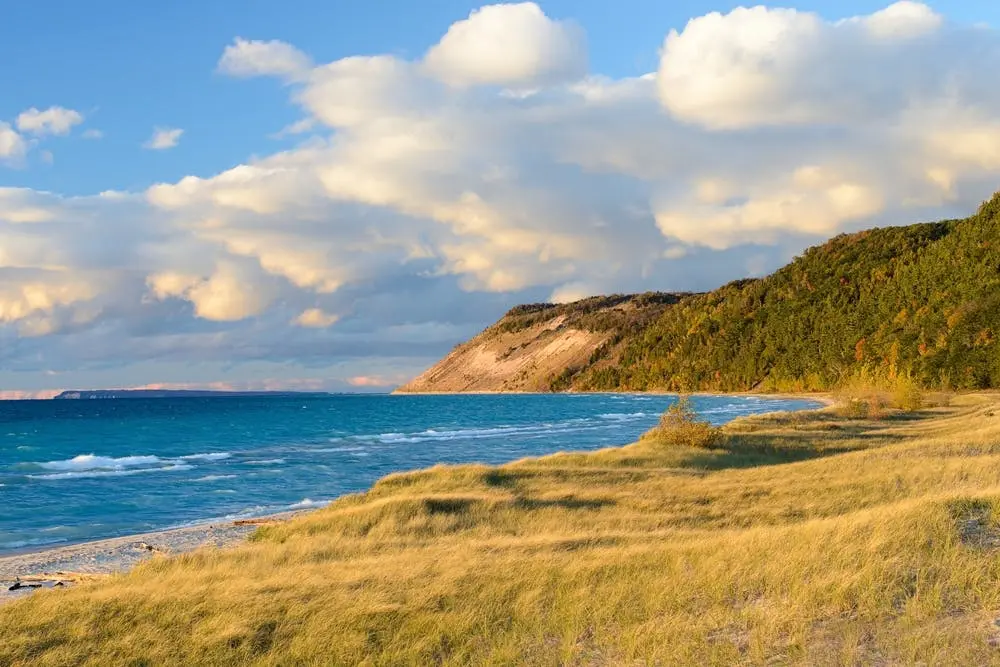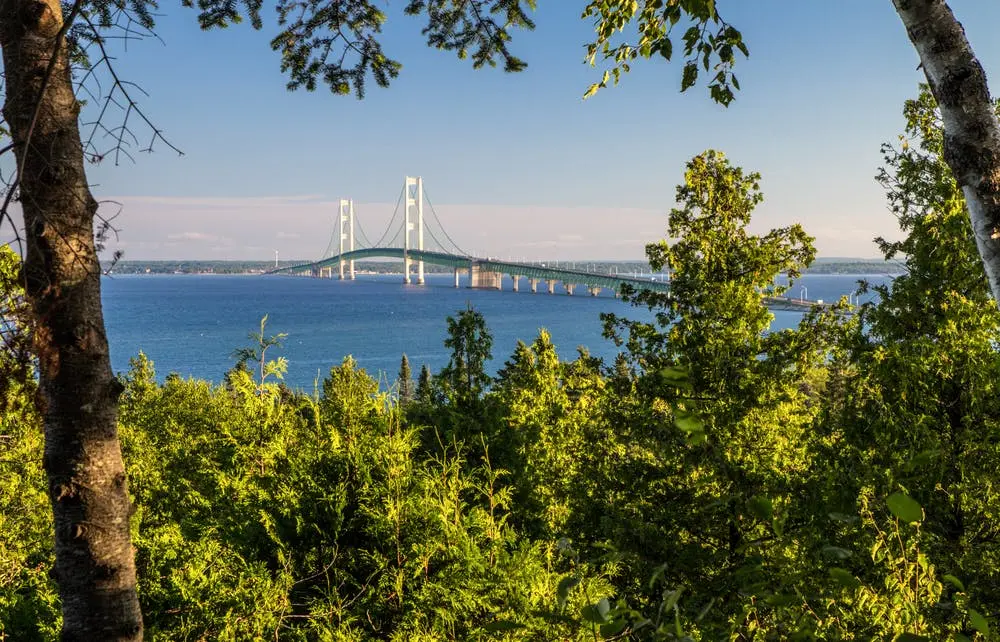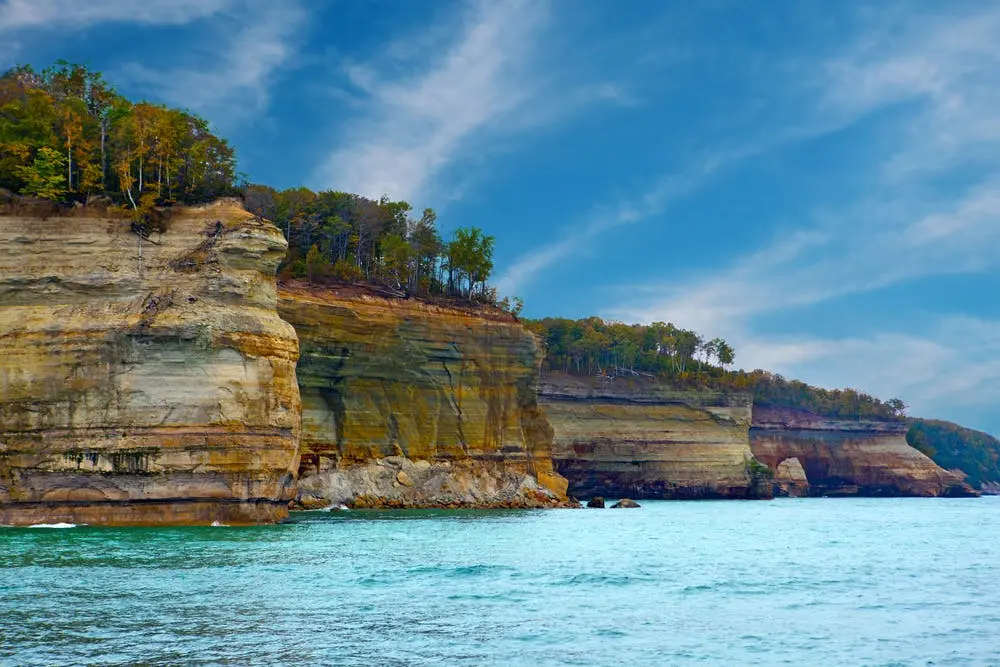RV Rentals Traverse City, Michigan
RV Rentals Near Traverse City, MI
Budget Friendly RV Rentals in Traverse City, MI
Top Travel Trailer RV Rentals
Pet Friendly RV Rentals in Traverse City, MI
Top Motorhome RV Rentals
Longer Term RV Rentals in Traverse City, MI



Explore Traverse City, Michigan, in an RVshare RV Rental
Located in the heart of northern Michigan, Traverse City was first home to Native American tribes like the Ojibwe, Ottawa, and Potawatomi. The original name for the city’s area was Kitchiwikwedongsing, sometimes known as just Wequetong, and it was given by the local natives to mean "the land at the head of the bay." This bay is known today as the Grand Traverse Bay, and the name for both the bay and city, Traverse, comes from the French word "traverse," meaning "crossing." The first European settlers in the area were French, and they believed the journey around the mouth of the Grand Traverse Bay was a long crossing, hence the origin of this name.
Traverse City first became an unofficial town in 1847 when Captain Horace Boardman purchased the city’s land and built a sawmill on the edge of the bay. Over the next few years, the mill was resold to new owners who invested in the mill’s production and built a community for employees of the mill to live. Around 1853, a post office was approved to be built in Traverse City, and the residents began to plant cherry trees on the city’s Old Mission Peninsula. These trees would later turn Traverse City into the largest producer of tart cherries in the United States, and it still is today.
Currently, visitors to Traverse City can learn about northern Michigan’s rich history through the city’s 11 historical markers and sites, including the Bingham District No. 5 Schoolhouse, City Opera House, Congregation Beth El, and morel. Everyone can also enjoy the annual National Cherry Festival in Traverse City, which is estimated to draw over 500,000 guests every year.
Plenty of tourists to Traverse City enjoy tasting and purchasing Midwestern-made wine too. There are well over 30 wineries in and around Traverse City, and there are grape vineyards scattered all along the 45th parallel in the area, which is a latitude of that offers optimal conditions for grape growing.
Events Near Traverse City, Michigan
The National Cherry Festival - Every year in July, Traverse City hosts the famous National Cherry Festival with cherry-centered activities, such as cherry pie-eating contests and cherry pit-spitting events.
Annual Winter Trails Day - Yearly in January, Traverse City's Timber Ridge RV and Recreation Resort has a day dedicated to wintertime hiking.
Traverse City Beer Week - In November, Traverse City restaurants and breweries offer prizes to residents and visitors who can get a special passport to mark off as they check out local beers.
Best National Parks Near Traverse City, MI
At 272 miles away, Indiana Sand Dunes National Park is the closest national park to Traverse City. At this national park, you can explore 15 miles of beachfront to Lake Michigan, stay at the park's many RV-friendly campgrounds, and hit the trails for hiking and biking opportunities.
Cuyahoga Valley National Park is 405 miles from Traverse City and is home to 100 waterfalls and lush terrain, making it the perfect destination for hikers at any skill level. This park also hosts ranger-led activities regularly if you aren't up for hiking and biking on your own.
Isle Royale National Park is a unique national park on a small island only accessible by boat. The park is about 429 miles from Traverse City and is located in the waters of Lake Superior above Michigan's Upper Peninsula. No vehicles are on the island, so all travel must be done by foot, which creates the chance for visitors to connect with the natural surroundings in a way that can't be achieved anywhere else.
Popular State Parks Near Traverse City, MI
North Higgins Lake State Park is a popular Michigan State Park near Traverse City and is home to Higgins Lake, a lake that was once a nursery for raising fish. Today, visitors can fish in the lake and check out nearby points of interest, like the Tisdale Triangle Pathway, a hiking path that doubles as a skiing trail in the wintertime.
Hartwick Pines State Park is another nearby park that hosts a historic logging museum. It also hosts a state-maintained campground that has full hookups and water lines for RVs.
For camping options year-round, check out Burt Lake State Park. This park has organized activities regularly for visitors and a public RV park.
Must-see Monuments and Landmarks Near Traverse City, MI
Plenty of landmarks exist in Traverse City. One of the most popular is the Hippie Tree, an artfully painted tree at the end of a short hiking path.
The Dennos Museum Center is also a popular stop. The museum shows art and history exhibits.
Another great sight to see is the Great Lakes Children's Museum. This popular museum has tons of interactive exhibits for children and adults alike.
RVshare’s Top Picks for Nearby RV Parks & Campgrounds
Paradise Cove is a privately owned campground in Traverse City that has its own grill and bar on the grounds. Here, you'll also find a boating marina and RV hookups for some sites. Another campground in the area is Holiday Park Campground, which has boats for rent on Silver Lake. Yet another option is the modern campgrounds at the Keith J. Charters Traverse City State Park. This campground is a good choice for those who prefer public campgrounds with wooded sites and full hookups.
RV Rentals Near Traverse City, MI
Frequently Asked Questions About Renting an RV Near Traverse City, MI
How much does it cost to rent an RV in Traverse City?Motorhomes are divided into Class A, B, and C vehicles. On average expect to pay $185 per night for Class A, $149 per night for Class B and $179 per night for Class C. Towable RVs include 5th Wheel, Travel Trailers, Popups, and Toy Hauler. On average, in Traverse City, MI, the 5th Wheel trailer starts at $70 per night. Pricing for the Travel Trailer begins at $60 per night, and the Popup Trailer starts at $65 per night.
Do you need to be a certain age to rent an RV in Traverse City?Yes. The minimum age is 25 to be eligible to get an RV Rental in Traverse City from RVshare.
Does RVshare have emergency roadside assistance?Yes. Every RV rental booked through RVshare receives 24/7 emergency roadside assistance.
Does RVshare offer one way RV rentals in Traverse City?Yes. Prior to renting any RV, check with the owner since not all will offer this particular option.
